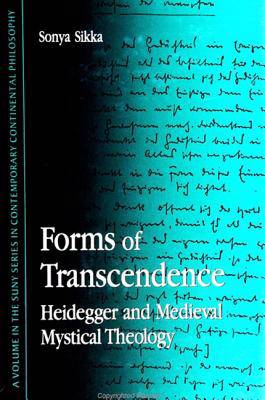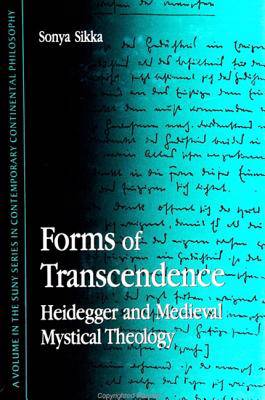
Bedankt voor het vertrouwen het afgelopen jaar! Om jou te bedanken bieden we GRATIS verzending (in België) aan op alles gedurende de hele maand januari.
- Afhalen na 1 uur in een winkel met voorraad
- Gratis thuislevering in België
- Ruim aanbod met 7 miljoen producten
Bedankt voor het vertrouwen het afgelopen jaar! Om jou te bedanken bieden we GRATIS verzending (in België) aan op alles gedurende de hele maand januari.
- Afhalen na 1 uur in een winkel met voorraad
- Gratis thuislevering in België
- Ruim aanbod met 7 miljoen producten
Zoeken
€ 145,45
+ 290 punten
Uitvoering
Omschrijving
This book sets up a dialogue between Heidegger and four medieval authors: St. Bonaventure, Meister Eckhart, Johannes Tauler, and Jan van Ruusbroec. Through a close reading of medieval and Heideggerian texts, the book brings to light elements that present possibilities for a revised appropriation of some traditional metaphysical and theological ideas, arguing that, in spite of Heidegger's critique of "ontotheology," many aspects of his thought make a positive, and not exclusively critical, contribution. Unlike some past studies of the relation between Heidegger and medieval mysticism, this book seeks to establish a real identity between the content, the subject-matter (Sache), of the medieval and Heideggerian texts that it examines. In so doing, it challenges Heidegger's own assertion that what he calls "being" cannot be called God. Against this assertion, Sikka argues that what is to be called God remains an open question, and points out metaphysical and theological elements in Heidegger's reflections on being that help to answer this question. Offering new insights into the relation between metaphysics, theology, and mysticism, the book contributes not only to Heidegger studies but to philosophical theology as well.
Specificaties
Betrokkenen
- Auteur(s):
- Uitgeverij:
Inhoud
- Aantal bladzijden:
- 308
- Taal:
- Engels
- Reeks:
Eigenschappen
- Productcode (EAN):
- 9780791433454
- Verschijningsdatum:
- 1/05/1997
- Uitvoering:
- Hardcover
- Formaat:
- Genaaid
- Afmetingen:
- 159 mm x 237 mm
- Gewicht:
- 630 g

Alleen bij Standaard Boekhandel
+ 290 punten op je klantenkaart van Standaard Boekhandel
Beoordelingen
We publiceren alleen reviews die voldoen aan de voorwaarden voor reviews. Bekijk onze voorwaarden voor reviews.












